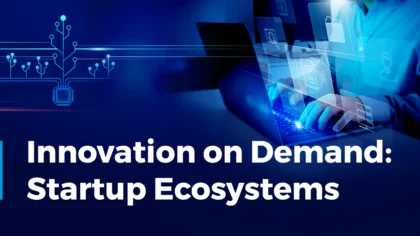When it comes to innovation, the old adage still holds — knowledge is power. In today’s fast-paced and digital world, where information is readily available, it can be overwhelming to keep up with all the new information. However, through effective knowledge management, organizations can lower the cost of corporate innovation and reduce the time required to come up with new ideas and solutions.
Knowledge management is a holistic approach to the collection, organization, and sharing of information. It allows organizations to store information in digital databases that employees can easily access. Knowledge management enables an organization to capture and share strategic insights among employees so that everyone is aligned on company objectives, market needs, and customer preferences. It is essential for sparking innovation within any organization.
How does Knowledge Management boost Corporate Innovation?
From the discovery of new products to the creation of new business partnerships, knowing what to do, when to do it, and where to find the information you need to move forward is crucial to success. And when it comes to managing knowledge, there is no better way to drive corporate innovation than by leveraging an integrated knowledge management strategy.
By Creating an Archive of Valuable Information
When key employees leave an organization, their years of experience disappear with them. When someone leaves, are you sure you have documented their process for solving problems, evaluating new technologies, or analyzing data? If not, their expertise vanishes. That is why it is crucial to consider knowledge management as an ongoing process that includes training, documentation, and coaching. You can consider utilizing knowledge management tools that can help you automate these processes.
By Establishing Effective Collaboration across Teams
Collaboration is vital to developing new ideas and generating creative solutions to problems. If your organization relies on email to share information, it is easy for messages to get buried or overlooked. In many cases, emails are not even intended for a specific employee — they’ are distributed to everyone in the company. When information is held in silos, it is difficult for different departments to communicate efficiently with each other. An easy way to solve this problem is to create a centralized knowledge base where employees can access information quickly and easily. One of the best ways to do this is by using a knowledge management solution. It allows teams to create and share content and collaborate in real-time.
By Helping You Set Your Innovation Priorities
One of the biggest challenges for any company is to determine how to best invest its resources. But how do you make sure every department has what it needs to succeed? It starts with creating a system for monitoring key performance indicators (KPIs) across departments. You should be able to ask your knowledge management system:
- What are the KPIs that are important right now?
- Which KPIs should you be looking at this month?
- Which KPIs do you need to track over the next year?
When a central database holds all of your KPIs, it is easy to set priorities and see where the gaps are. For example, you can track which KPIs are missing and which are too high or too low. A centralized database makes it easier to identify resources that are over- or under-utilized. It can also help you identify which departments need more support.
By Streamlining Experimentation
Some of the best innovations come from teams that are willing to try new things. You want them to feel empowered to experiment and take calculated risks. When your organization has a centralized database, it becomes easier to observe what works and what does not. You can use the data points to inform future decisions and generate new ideas. For example, let’s say you have been observing a spike in customer support calls about a particular product. If your organization has a centralized knowledge management system, it is easy to search through open tickets and find the root cause. It is also possible to review the volume of calls associated with other products in the same category.
Leverage the Benefits of Knowledge Management
At its core, knowledge management is an effort to manage information and its creation so that organizations have the right data and people at the right place and time. By utilizing the right data and people, organizations can gain the insight they need to identify growth opportunities and maximize revenue and profitability.
What about you? What are your strategies and best practices for knowledge management? Get in touch & let us know!




![15 Top Market Intelligence Software Tools [2024] | StartUs Insights](https://www.startus-insights.com/wp-content/uploads/2024/03/Market-Intelligence-Software-SharedImg-StartUs-Insights-noresize-420x236.webp)
![13 Top Female-founded Startups Globally [2024] | StartUs Insights](https://www.startus-insights.com/wp-content/uploads/2024/03/Female-Founded-Startups-SharedImg-StartUs-Insights-noresize-420x236.webp)
